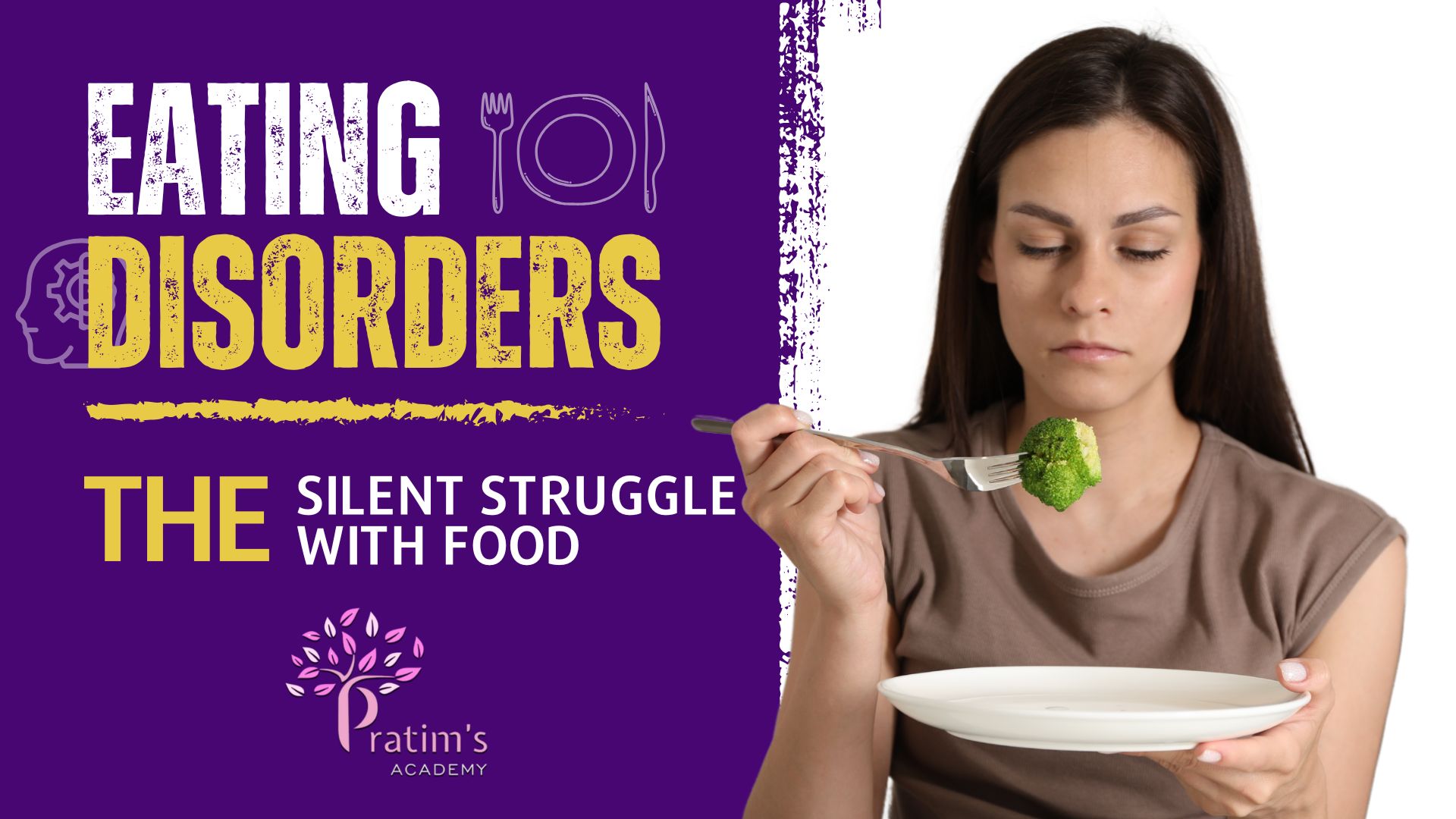Eating Disorders: The Silent Struggle with Food
Rabindranath Tagore’s poem Damodar Seth reflects how an intense obsession with control and self-denial can lead to suffering. Damodar Seth, Tagore’s fussy eater, represents the ultimate foodie. This is one of his light-hearted poems, but in recent times, it also mirrors the struggles of eating disorders. Just as Damodar Seth in the poem forces himself into extreme hardship, believing it will make him stronger, many individuals with this type of disorder push their bodies to unhealthy limits due to fear and unrealistic expectations, often harming themselves in the process.
Have you ever sat in front of your favourite meal, but instead of feeling happy, you felt scared? Or have you ever eaten so much that you felt sick, yet you couldn’t stop? These are the hidden battles faced by millions dealing with eating disorders. It’s not just about food—it’s about emotions, self-image, and mental health.
What Are Eating Disorders?
Eating disorders are serious conditions where people have an unhealthy relationship with food. It’s not just about wanting to be thin; it’s often about deep emotional struggles that affect both the body and mind. The most common types are:
- Anorexia Nervosa – A strong fear of gaining weight that leads to extreme dieting and starvation (American Psychiatric Association, 2022).
- Bulimia Nervosa – Eating a lot of food at once, then trying to get rid of it by vomiting or over-exercising (National Eating Disorders Association, 2023).
- Binge Eating Disorder – Eating large amounts of food uncontrollably, often due to stress or emotions, without throwing up afterward (Mayo Clinic, 2023).
- ARFID (Avoidant/Restrictive Food Intake Disorder) – Avoiding certain foods because of fear, texture issues, or lack of interest in eating (National Institute of Mental Health, 2022).
Why Do People Develop Eating Disorders?
Eating disorder don’t happen overnight. They develop because of a mix of different factors:
- Society & Media – Social media and fashion trends promote the idea that being thin equals beauty, pushing many to extreme diets (Harvard Medical School, 2023).
- Emotional Struggles – Stress, anxiety, low self-esteem, or past trauma can make people use food to cope with emotions (World Health Organization, 2023).
- Genetics & Biology – Some people may be more likely to develop an eating disorder due to their genes or brain chemistry (National Institute on Mental Health, 2023).
The Harmful Effects of Eating Disorders
Eating disorders don’t just affect these habits; they harm the whole body. They can lead to serious health problems like:
- Weak bones and muscles (National Osteoporosis Foundation, 2023)
- Heart problems (American Heart Association, 2023)
- Stomach issues and digestion problems
- Anxiety, depression, and loneliness
Can Eating Disorders Be Treated? Yes!
With the right support, recovery is possible. Some ways to get help include:
- Therapy – Talking to a counselor can help change negative thoughts about food and body image (American Psychological Association, 2023).
Tame Your Taste, Train Your Mind- Health Begins with Choice! Click here
- Medical Support – Doctors and nutritionists help restore physical health with proper nutrition.
For reliable nutritional support, join our WhatsApp group today!
- Support Groups – Connecting with others going through the same struggles can be healing.
Your Body Deserves Kindness
You are more than a number on a scale. True beauty comes from being healthy and confident, not from fitting into unrealistic beauty standards. If you or someone you know is struggling with food and body image, reaching out for help is a sign of strength, not weakness. Let’s create a world where everyone feels valued, no matter their shape or size.
References
- American Psychiatric Association (2022).
- Mayo Clinic (2023). Binge Eating Disorder.
- National Institute of Mental Health (2022). ARFID Overview.
- Harvard Medical School (2023). The Impact of Social Media on Eating Disorders.
- World Health Organization (2023). Mental Health and Eating Disorders.
- National Institute on Mental Health (2023). Genetic Risk Factors of Eating Disorders.
- American Psychological Association (2023). Therapy for Eating Disorders.
- National Eating Disorders Association (2023). Support Groups & Recovery.



